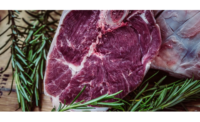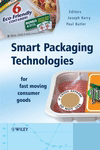Amcor, a packaging solutions provider, revealed new research into how the coronavirus pandemic has changed consumer attitudes to meat and meat alternatives consumption across Europe. The research interviewed 1,000 meat-alternative shoppers across the UK, Germany, France, Italy and The Netherlands to understand how the growth of the plant-based food sector, coupled with the ongoing pandemic , has affected consumer shopping habits and their corresponding attitudes to packaging preferences.
Since the start of the COVID-19 pandemic, various studies have been conducted into shoppers attitudes towards everyday goods such as The European Consumer Organization, BCG and Blue Horizon and Eit Food. As the pandemic compelled more consumers to stay indoors and cook for themselves and their families, shoppers have shown an increased awareness and sensitivity to packaging when making purchasing decisions. Many of these decisions have been based around affordability, sustainability, safety and nutrition — which brands can highlight on their product labels. The following are 3 ways the pandemic has altered consumer's eating habits:
1. Animal Welfare and Vegetables
Amcor’s research revealed that 80% of consumers across Europe have changed the way they consume meat or meat alternatives, with 50% of consumers eating more meat-alternatives since the Covid-19 outbreak. The report, entitled “Packaging and meat-alternative lovers: How an eye for detail is shaping purchase behavior in Europe” breaks down the results by country. The UK, in particular, leads in the number of consumers that indicated this change in their eating habits (12%)
“The research shows that there are two reasons that stood out: concerns about animal welfare and wanting to incorporate more vegetables into their diets,” says Rosalia Rosalinova, senior marketing manager, Amcor Flexibles.
2. Food Packaging Awareness
The report also found that consumers of meat alternatives are more likely to pay attention to food packaging than before. 20% want more detailed information on their food packaging, and 95% say they want to be able to understand the finer details of what they’re consuming. Meanwhile, 89% demand visibility of the product.
“Transparent packaging that shows off the appearance and texture of food is a growing consumer trend,” explained Rosalia. “This could be because they want to understand the nature of what they’re buying, given the relative novelty of some meat alternatives on the market today. But brands also need to take into account that transparent packaging also reassures consumers that the food they’re buying is still fresh and safe to eat — so packaging needs to achieve a minimalist look and feel, while still providing high barrier performance to ensure the food remains healthy and does not go to waste.”
3. Sustainability
Amcor’s 2020 report “It’s a Wrap” uncovered that the large majority (72%) of European consumers were willing to pay 5% more for food products in more sustainable packaging. This trend remains steady for 75% of meat-alternative shoppers in 2021, together with the finding that 42% are opting to eat more meat-alternatives due to environmental reasons.
The overall importance placed on packaging sustainability has not reduced during the pandemic, which suggests that even as many consumers are changing certain lifestyle habits, the desire to protect the planet is still a top priority. 67% of respondents stated that they regularly check packaging for clues to determine its sustainability, with terms like “recyclable” and “less plastic” resonating the highest (30% and 25% respectively). In the UK in particular, the term “recycling” especially resonated for 38% of consumers, while the term “less plastic” showed the same level of engagement as the European average.
“The European meat alternatives market is expected to grow at a CAGR of 28.67% from 2020-2027,” concluded Rosalia. “With more meat alternative products to choose from every year, brands are facing tougher competition with increased expectations to provide packaging that is sustainable, informative and attractive.
“While the pandemic has seen some changes in consumer attitudes to meat and meat alternatives, attitudes to sustainability have remained largely the same, and consumers are still willing to pay more for brands that can demonstrate their packaging’s sustainability credentials. Brands should pay attention to these findings as they highlight a growing shift towards more eco-conscious consumers, who supplement their reduced meat consumption with a keener awareness of packaging and labels.”




